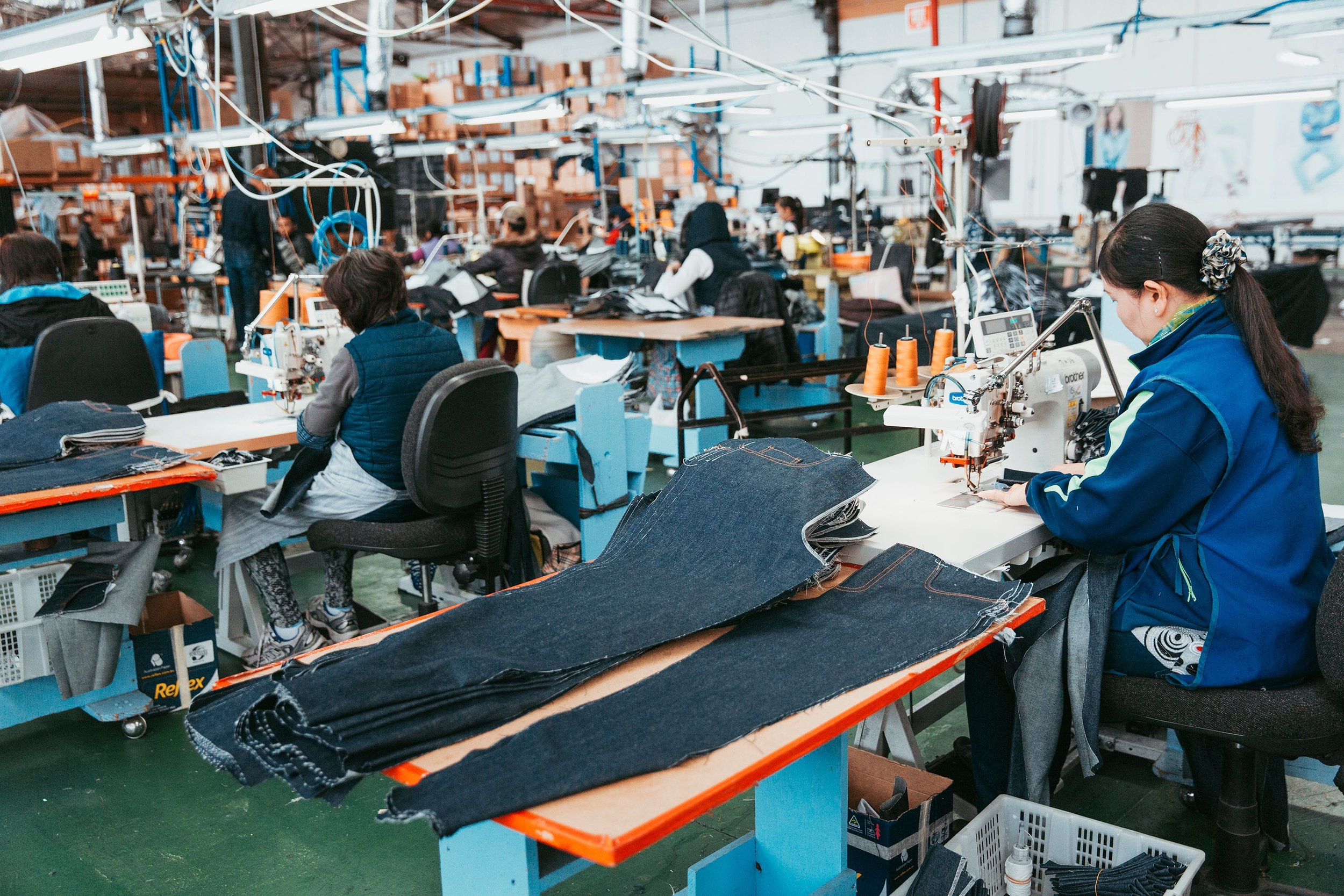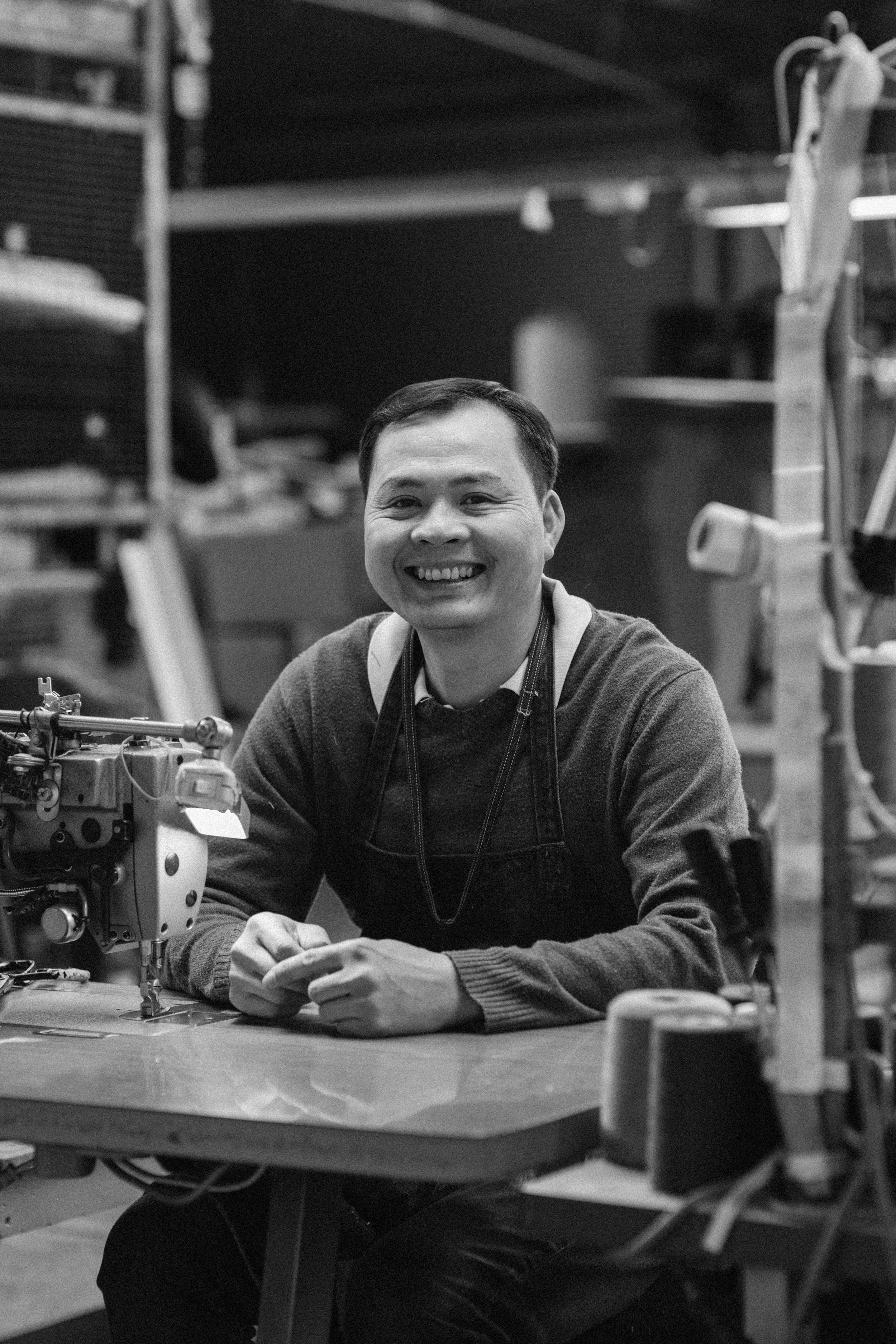Advance Australian Manufacturing With Nobody Denim
Nobody Denim ThornburyJohn Condilis is the Chairperson and Co-Founder of Nobody Denim, which is a Melbourne-based women’s jeans label that, in his own words, “fosters individuality and inspires confidence in the people who wear their jeans”.
After two years of a global pandemic, he’s resolved to redefining the way we manufacture in this country. As well as talking about how forced shutdowns and new ways of working impacted on Nobody Denim, he shares with us his insights on what he sees as the best means for moving forward for Australian manufacturing in a post-pandemic world.
AAM: How has the last two years been for Nobody Denim?
John Condilis: “It was extremely tough. Retailers in New South Wales and Victoria were closed whilst Queensland, South Australia, New Zealand, Tasmania and Western Australia retailers were still operating. So, we couldn’t shut down, the expectation was to keep supplying them whilst our 2 biggest volume drivers were in lockdown.”
“We were in that middle ground of trying to keep manufacturing as lean as possible while still servicing our customers. Meanwhile, rent doesn't stop, all your utilities don’t stop, all the fixed overheads don't stop, and your revenues decrease by 50 to 70 percent. It was great that employees were receiving a minimum of $450 for losing hours, however employers were getting no assistance when both states were in lockdown. How does that work?”
“On the other hand, we were lucky we didn’t have many fulfilment issues because we manufacture everything in-house. We had planned to have enough raw material on site – ready to rock ‘n’ roll and go hard – but everything came to a stop. At the time, we didn’t know how long it was going to last for. They said two weeks but, as we all know now, it was much longer than that.”
“We were constantly communicating with our retailers to ensure they were going to accept deliveries. The response was back in June & July 21, keep sending the goods’ but then, by the end of August, they weren’t taking any more stock which left us with quite a amount of work-in-progress. So, what do you do? Do you stop? Do you slow down? What do you do? That was the real challenge for us as there was so much uncertainty.”
Have the kind of issues Nobody Denim encountered during COVID changed your focus?
“I've been on many different roundtables and committees. The challenge is to think outside the square. At the start of COVID, we pivoted to masks and scrubs... and did what we had to do and made it work. We've got to create some stability and security. This is why I'm talking to people in different sectors; to create, to understand how to keep secured work, in some way or form, here locally.”
“For example, we could create the manufacturing of textile products for the public sector, police, etc. We have the capability to do this. So, how do we work together and diversify? How can we create locally new product streams that are stable and long-term as part of the journey to improve and advance our manufacturing capability?”
“I'm working with Swinburne University on efficiencies, layouts and advanced manufacturing, and asking what Industry 4.0 looks like for the garment industry. So, that's where my focus is – the security and stability, and that reassurance that we can go on with business and grow. It's a big unknown.”
What are some of the positives Nobody Denim experienced?
"It accelerated people's thinking. In our case, it accelerated the establishment of an infrastructure that’s nimble and flexible. Agility is a real advantage for local manufacturing. This has always been the case but it's never been at the forefront of priorities. And that’s not only for us but for the industry full-stop."
"Years ago, I was part of a Federal Government initiative that was about identifying key stakeholders in different sectors in manufacturing who were able to be unique and nimble. But the program got canned. After what we went through in the last 18 months to two years (i.e. COVID times), we all realised that our local capability is nowhere near where it needs to be. So, it gave us, one, an opportunity to go into different markets, and two, it actually showed us that we can be very nimble, flexible and pivot. It has given us that reassurance and confidence to tackle other areas and think outside the square. This has been a big positive for me."
How are you using the pandemic as an opportunity to emerge stronger?
“You can't just work as a traditional manufacturer anymore. Again, it goes back to being nimble, not over-producing, working with Swinburne, producing smaller batch sizes… It's around that capability of flexing and moving.”
Nobody Denim employee Thoi“What's happened over the years a lot of Brands in our sector are doing the majority of manufacturing overseas. Not even 10 percent manufacture locally in the fashion industry. So, due to supply chain issues of raw materials and finished goods, lead times have been increased. What it's done is give us the opportunity to become a bit more nimble and flexible and, if we can be smart about it, reduce our lead time, then local supply becomes preferred and attractive, because no one wants to sit on stock.”
What’s next for Nobody Denim and the garment industry at large?
“To me, setting the foundations over the next two to three years is really important. I want to see textile manufacturing collaborate more with private industry, governments, and universities. This is so important for building robust, advanced manufacturing capability in Australia. If we get it right, we’ll then be able to competitively produce products and grow local manufacturing.”
“I think there's plenty of opportunity. I really do.”
Find out more about Nobody Denim at https://nobodydenim.com/
The Nobody Denim story is part of Integra Systems' Advance Australian Manufacturing (#AAM) initiative. Read all about it and see how you can participate.



